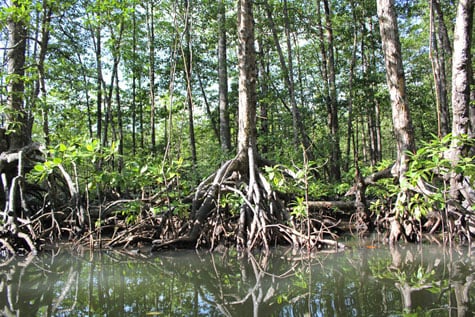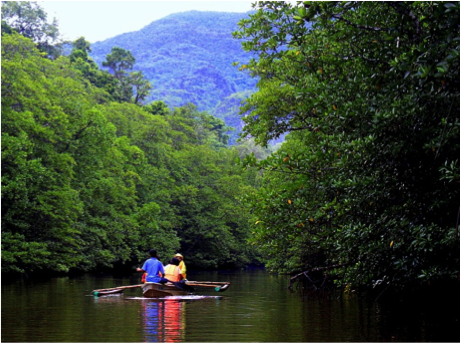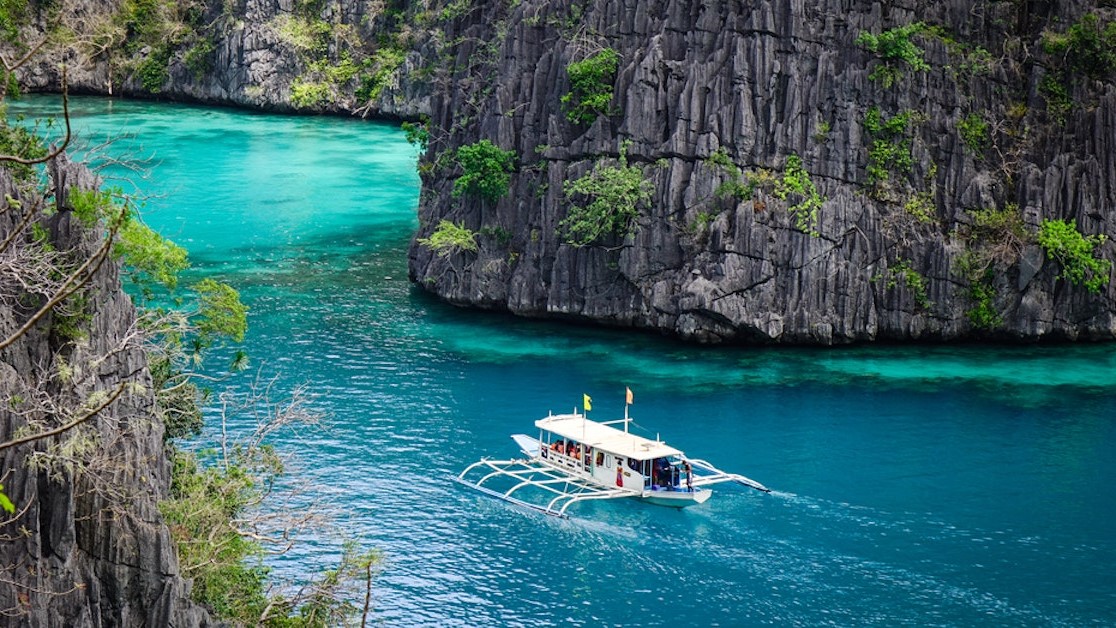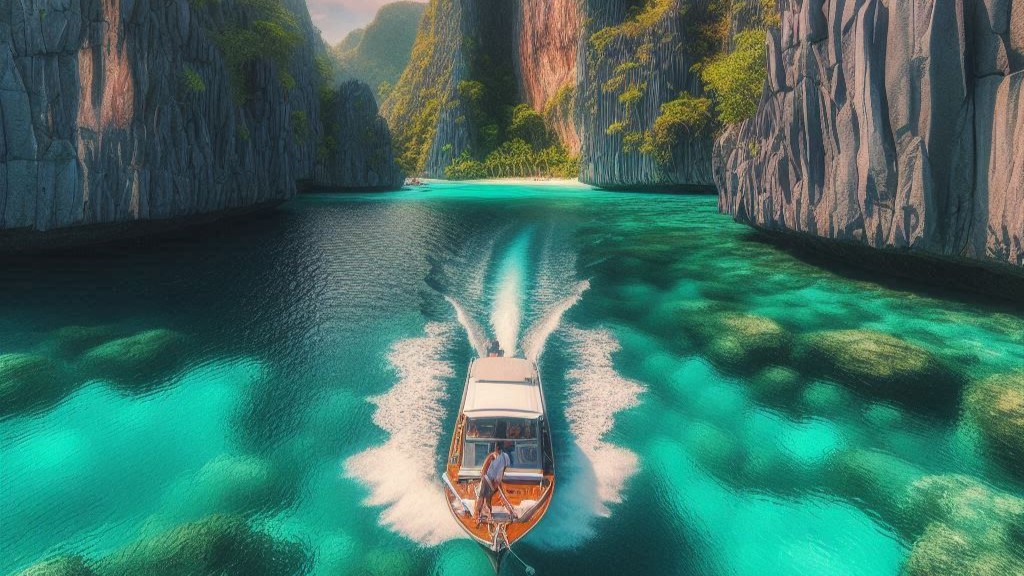Exploring Palawan‘s mangrove forests is a captivating journey into one of the most ecologically significant and diverse ecosystems on the planet.

Mangroves play a crucial role in supporting marine life, protecting coastlines, and maintaining overall environmental balance.

Here’s a detailed description of the experience of exploring Palawan‘s mangrove forests:
Entering the Mangrove Canopies:
- The adventure often begins by navigating water channels that wind through dense mangrove canopies.
- The towering mangrove trees with their prop roots create a natural tunnel, providing a unique and immersive environment.
Biodiversity in Mangrove Ecosystems:
- Palawan’s mangrove forests are hotspots of biodiversity, housing a variety of plant and animal species.
- The mangroves serve as nurseries for juvenile fish, crabs, and other marine organisms, contributing to the health of coastal ecosystems.
Mangrove Tree Varieties:
- Palawan’s mangrove forests boast diverse species of mangrove trees, including Rhizophora, Avicennia, and Sonneratia.
- Each species has distinct adaptations to the intertidal zone, showcasing the resilience of these trees in challenging coastal environments.
Wildlife Encounters:
- As you paddle or cruise through the mangrove channels, keep an eye out for wildlife.
- Birds like kingfishers, egrets, and herons are commonly seen, while mudskippers and fiddler crabs may be spotted along the muddy shores.
Educational Tours and Guided Walks:
- Guided tours with knowledgeable local guides provide insights into the ecological importance of mangrove ecosystems.
- Educational walks may take you along elevated wooden boardwalks or trails, allowing you to observe the mangroves up close without disturbing the delicate ecosystem.
Mangrove Conservation Initiatives:
- Some areas may have mangrove conservation initiatives, emphasizing the importance of protecting and preserving these vital ecosystems.
- These initiatives may include community-based projects, reforestation efforts, and educational programs.
Demonstration of Mangrove Functions:
- Guides often demonstrate the unique functions of mangroves, such as the ability of prop roots to filter sediments and nutrients from the water.
- Explanations about the role of mangroves in providing habitat, preventing erosion, and acting as a buffer against storm surges enhance the educational experience.
Mangrove Nursery Areas:
- Some mangrove forests may have designated nursery areas where young mangrove saplings are cultivated.
- Understanding the life cycle of mangroves, from seed germination to mature trees, adds depth to the exploration.
Photography Opportunities:
- The picturesque landscapes of Palawan’s mangrove forests offer numerous opportunities for photography.
- Capture the interplay of light and shadows, reflections on the water, and the intricate network of mangrove roots.
Floating Forests and Submerged Roots:
- Witness the phenomenon of “floating forests” where mangrove trees seem to rise from the water on stilt-like roots.
- The intricate network of submerged roots provides a complex habitat for various marine organisms.
Sunset or Sunrise Tours:
- Consider embarking on a sunset or sunrise tour for a magical experience in the mangrove forests.
- The changing colors of the sky, reflected in the tranquil waters, create a serene and unforgettable atmosphere.
Conservation Challenges and Solutions:
- Gain insights into the challenges faced by mangrove ecosystems, such as habitat loss and degradation.
- Learn about ongoing conservation efforts and the importance of sustainable practices to ensure the long-term health of these vital coastal habitats.
Exploring Palawan’s mangrove forests is not just a journey into a natural wonder; it’s an opportunity to appreciate the intricate balance of life and ecosystems. The experience offers a heightened awareness of the ecological services provided by mangroves and underscores the need for conservation efforts to protect these valuable coastal treasures.




